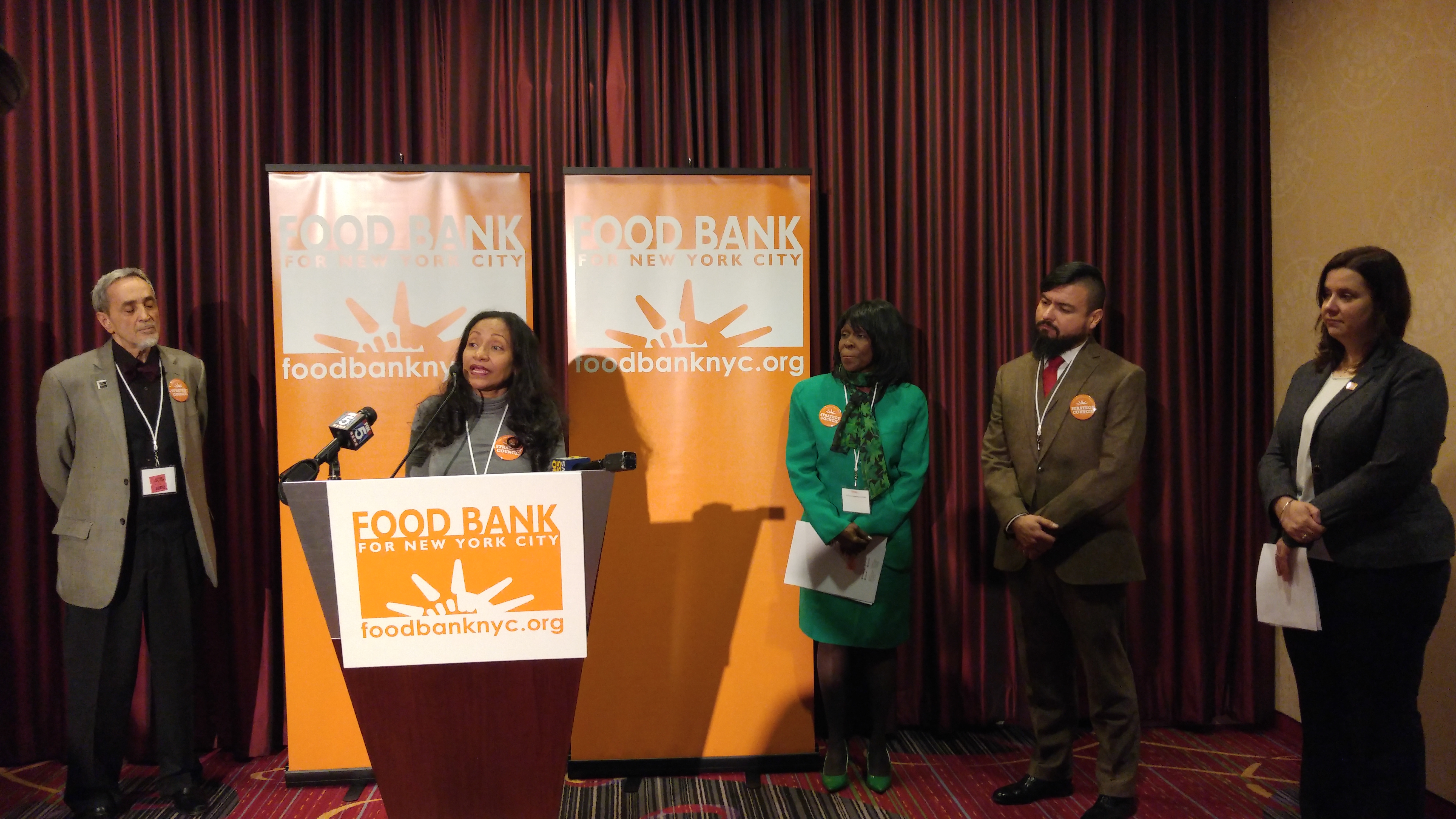Report Finds NYC Food Banks Under-Resourced

A new report from Food Bank for New York City found food banks across the city don't have enough staff or resources to handle the number of people they serve. And with tens of thousands of New Yorkers expected to lose food stamp benefits, the organization fears pantries will not be able to handle the increased need.
According to the report, which was released at Food Bank for New York City's annual Conference on Hunger and Poverty on Wednesday, a little more than half of food pantries in the city operate on less than $25000 a year. Food Bank for New York City's president Margarette Purvis puts that in perspective.
"If the average food pantry was a family, they'd be living below poverty. Yet many of them are being depended on by 1800 people at least," Purvis said.
But the problem isn't just the funding. The report also found nearly half of food pantries in the city have no computer on site or are not able to consistently access a computer.
"We were unaware that only a quarter of our network has their own, exclusive computer for their program's use..." Purvis said. "We didn't want to go out there and believe we only need food, we do need other things..."
Additionally, half of pantries in the city depend entirely on full and part-time volunteers like Maria Vives. She has been volunteering with Give Them to Eat in the Bronx for four years. Vives said volunteers do important work, but it can be hard to keep your own life in balance when you spend so much time at pantries.
"I take on seasonal jobs and things like that because I do need to, you know, pay my rent," Vives said. "It's a strain because it's a hardship on those volunteering. They like to volunteer but there does come a point where some of the volunteers... find jobs or move to other places."
A day of volunteering is not unlike an average nine-to-five work day. Vives said a day often starts at 7:30 in the morning and can end well past four in the afternoon, the day full of handing out food.
"And even when we close, we still have people knocking on the doors saying they just came from work and they need to feed their kids and they need food supplies," Vives said.
She added that a number of pantries in her area recently closed because they didn't have enough funding. And that is more than a problem for just the Bronx.
"At my pantry alone, we have people coming from Brooklyn and Queens," Vives said.
What makes all these issues more of a concern is that Food Bank said in April, over 50 thousand New Yorkers are set to lose their SNAP benefits, previously known as food stamps. During the recession in 2008 when unemployment sky-rocketed, a restriction was waived that made more unemployed people eligible for SNAP. Now, those restrictions are being reinstated in many parts of the state. Able-bodied adults without dependents, or ABAWDS, between the ages of 18 to 49 will have very limited access to SNAP. In other words, if you are unemployed, childless and do not have a disability, you will largely lose food stamps.
Four of New York City's boroughs are waived from ABAWD limits, but most of Manhattan will be subject to the restrictions once again. Purvis said this will put additional strain on the already struggling food bank network. And it's not just a problem for Manhattan.
"On a map we are divided by boroughs, but we're just one city," Purvis said. "There's no such thing as your arms are covered by a blanket but your feet aren't, so you're warm. No... if one part is cold, the whole thing is cold."
Now, Food Bank for New York City is calling on New Yorkers to support their local pantries so they have the resources they need. Pantry directors from across the city echoed the sentiment.
"We're considered the last service," said Swami Durga Das, executive director of River Fund. "We are the front line in this war against poverty and we need all the support we can get."
But others want more fundamental change for underlying issues causing sustained poverty so food pantries don't carry as large a burden.
"Rather than put together a sustainable solution, we want to create a dependency on an emergency network that can barely cope with the case-loads we're already dealing with right now," said Program Services Director for New York Common Pantry Daniel Reyes.
What they agree upon though is the need for awareness, now more than ever. At a time when tens of thousands of New Yorkers will find themselves relying more than ever on food pantries, they said it's important all New Yorkers see this is a problem for the city as a whole, not just for those in need.

